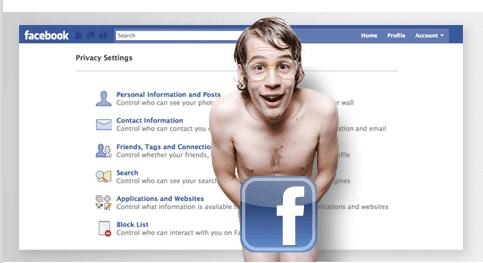It is noteworthy that these social network sites along with other online services are accessible for the general population for free while they make a large amount of money through advertising and providing information of users for third party firms and corporations for profits. This is mentioned in Miller (2011)’s “Everyone’s Watching” chapter in his book, thus posing the question of an increasingly surveilled society where not only the government but other kinds of institutions and organizations are also gaining surprising information about the general population.
In this light, the practice of maintain a somewhat shallow level of privacy seems to have more connection and overlap with the attempt of SNS users’ construction and protection of their social identities. This is coming from the suggestion or the real-life experience of certain Facebook users that privacy is only a concern once they or someone they know have experienced a negative consequence as a result of their disclosures and lax privacy setting, leading to their social identities being affected.
As members of a community, it is important for people to know that their online actions can have impact. Additionally, most people, especially young students, are pursuing future careers, and higher education is their launch pad. Social media posts can show up in search engine queries. Companies are no longer just looking at your resume. They want to know what you are doing (and saying) online too. Now, that’s more of the punitive side of things. Digital identity is about much more than just worrying about its effects on future employment or conduct violations. Students or people with a fluent grasp of social media can accelerate their learning, develop meaningful connections with peers, and grow their professional network. What we do online can affect our face-to-face interactions…and vice versa.
That is to say, institutional privacy seems to be a far-fetched concern to most of the people who are aware of its existence. Perhaps is not yet big enough of an immediate concern for people but it should not be neglected. Although the clear line between what information to be put online (and what not to) cannot be drawn, netizens should still be cautious and think twice about what they choose to disclose on the online realm.

You are totally right, I think we need a better understanding of the consequences of social media and how we disclose personal information. It's a matter of education, and ultimately a urgent need for the children nowadays!
ReplyDeleteLook at this short video which tries to raise awareness about that, it's a must see https://www.youtube.com/watch?v=nOUu1fldBbI
By the way, this is me, Alberto :P
Delete